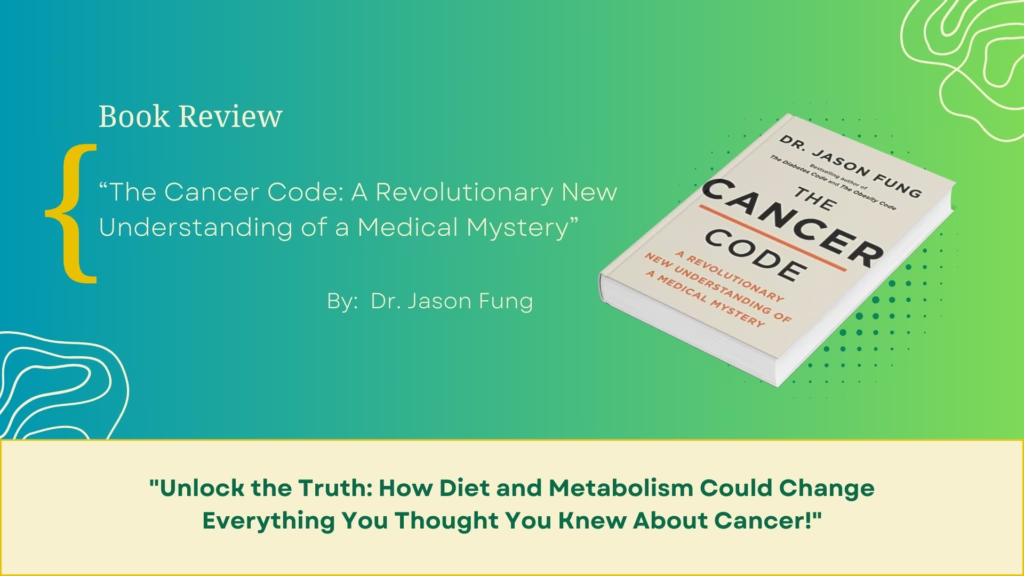
The Body Keeps the Score: Brain, Mind, and Body in the Healing of Trauma Review
Discover how trauma impacts the brain, body, and healing process with our in-depth review of The Body Keeps the Score by Dr.
Dr. Thomas Seyfried’s groundbreaking work challenges the mainstream understanding of cancer as a purely genetic disease. Instead, he proposes that cancer is primarily a metabolic disorder driven by mitochondrial dysfunction, rather than gene mutations. The book meticulously examines the Warburg effect—where cancer cells rely on glycolysis rather than oxidative phosphorylation for energy production—even in the presence of oxygen.
Drawing from decades of research, Seyfried details how impaired mitochondrial function leads to genomic instability and abnormal cell growth, positioning cancer as a metabolic disease rather than a genetic one. The book is divided into comprehensive sections covering historical perspectives, scientific foundations, experimental evidence, and practical applications, including dietary interventions like the ketogenic diet as therapeutic approaches.
In Cancer as a Metabolic Disease, Dr. Thomas Seyfried presents a revolutionary perspective on cancer, directly challenging the genetic mutation theory that has dominated oncology for decades. As a professor of biology with extensive experience in cancer research, Seyfried builds on the foundational work of Otto Warburg to argue that mitochondrial dysfunction—rather than genetic mutations—is at the heart of cancer development.
By thoroughly analyzing the metabolic underpinnings of tumor growth, Seyfried provides compelling evidence that cancer cells’ reliance on fermentation over oxidative phosphorylation is a hallmark of their pathology. This metabolic inflexibility, according to Seyfried, makes them uniquely vulnerable to therapies that restrict glucose and elevate ketones, thereby selectively targeting cancer cells while preserving healthy ones.
Dr. Thomas Seyfried’s Cancer as a Metabolic Disease is an academic and scientific masterpiece that challenges the very foundations of modern oncology. Seyfried’s hypothesis that cancer originates from mitochondrial dysfunction rather than genetic mutations echoes the pioneering insights of Otto Warburg, yet expands upon them with rigorous modern research.
One of the book’s core strengths is its meticulous analysis of the Warburg effect. Seyfried explains how cancer cells bypass oxidative phosphorylation and instead rely on glycolysis, even in the presence of oxygen—an observation that mainstream cancer research has largely overlooked. By positioning cancer as a disease of energy metabolism, he challenges the prevailing view that genetic mutations are the primary drivers of malignancy.
Seyfried not only critiques the genetic theory of cancer but also offers practical insights into therapeutic strategies. He advocates for metabolic therapies, including ketogenic diets and calorie restriction, which aim to exploit the metabolic weaknesses of cancer cells. By reducing glucose availability and increasing ketone levels, these approaches can effectively starve cancer cells while nourishing healthy ones.
The book’s academic rigor is both a strength and a challenge; it is dense with data, charts, and biochemical analyses, making it most suitable for readers with a strong scientific background. Nevertheless, for those willing to engage deeply, Seyfried’s work offers invaluable insights that challenge the status quo and pave the way for more effective, less toxic cancer treatments.
Dr. Thomas Seyfried’s Cancer as a Metabolic Disease is an academic and scientific masterpiece that challenges the very foundations of modern oncology. Seyfried’s hypothesis that cancer originates from mitochondrial dysfunction rather than genetic mutations echoes the pioneering insights of Otto Warburg, yet expands upon them with rigorous modern research.
One of the book’s core strengths is its meticulous analysis of the Warburg effect. Seyfried explains how cancer cells bypass oxidative phosphorylation and instead rely on glycolysis, even in the presence of oxygen—an observation that mainstream cancer research has largely overlooked. By positioning cancer as a disease of energy metabolism, he challenges the prevailing view that genetic mutations are the primary drivers of malignancy.
Seyfried not only critiques the genetic theory of cancer but also offers practical insights into therapeutic strategies. He advocates for metabolic therapies, including ketogenic diets and calorie restriction, which aim to exploit the metabolic weaknesses of cancer cells. By reducing glucose availability and increasing ketone levels, these approaches can effectively starve cancer cells while nourishing healthy ones.
The book’s academic rigor is both a strength and a challenge; it is dense with data, charts, and biochemical analyses, making it most suitable for readers with a strong scientific background. Nevertheless, for those willing to engage deeply, Seyfried’s work offers invaluable insights that challenge the status quo and pave the way for more effective, less toxic cancer treatments.
“Cancer is not a genetic disease; it is a disease of mitochondrial dysfunction.”
“The Warburg effect is not a symptom of cancer; it is the cause.”
“The resolution of cancer requires a shift in paradigm from a genetic origin to a metabolic origin.”
Cancer as a Metabolic Disease is an essential read for researchers, healthcare professionals, and anyone interested in a paradigm shift in cancer understanding. Dr. Seyfried challenges the genetic mutation model that has dominated cancer research for decades, advocating instead for a metabolic approach rooted in the dysfunction of cellular energy processes.
The book not only provides a comprehensive critique of the genetic theory but also lays a solid foundation for metabolic therapies, including ketogenic diets and fasting protocols. Its profound implications urge a reevaluation of both cancer prevention and treatment strategies, making it an indispensable resource for those passionate about advancing cancer research and patient care.
This review may present alternative perspectives on cancer that differ from mainstream medical consensus. The theories and approaches discussed are presented for informational purposes only.
Readers should note that this content does not constitute medical advice and should not guide treatment decisions. Any consideration of metabolic approaches to cancer should occur under the supervision of qualified healthcare professionals familiar with your specific medical situation.
Please refer to our full medical disclaimer in the footer for comprehensive information about the educational nature of our content.

Discover how trauma impacts the brain, body, and healing process with our in-depth review of The Body Keeps the Score by Dr.

In “The Cancer Code,” Dr. Jason Fung presents a transformative approach to understanding cancer, challenging the conventional perspectives that have

Discover “The Ancestral Diet Revolution” by Chris Knobbe, MD & Suzanne Alexander, M.Ed., a ground-breaking book that reveals how seed